Bill Gates on being Conspiracy's #1 Bad Guy
"The idea that Dr Fauci got picked for that sort of behind the curtain role, and I got picked for it… I would not have suspected it."
Hi,
A few weeks ago we took the podcast I work on — Armchaired and Dangerous — on the road, recording in a number of theatres down the West Coast of the United States.
Our big surprise in Seattle was having Bill Gates join us on stage, where we could talk to him about what it was like to be at the centre of so many conspiracy theories: Especially ones involving vaccines and the pandemic.
Bill doesn’t really turn up for live podcast recordings in giant theatres, and he doesn’t tend to talk about the conspiracy narratives he often finds himself embroiled in — so this felt special.
It was a fun reveal — the audience didn’t know what the night’s topic was until I rolled the pre-recorded introduction, setting up the fact that we were in Bill’s hometown… so this would be the Bill Gates episode.
Then for about five minutes Dax, Monica and I got stuck into the topic, as we usually do.
Then — when I gave a cue (mentioning Mr Clippy, the very questionable digital assistant) Bill Gates just wandered onto the stage, and took a seat.
People went apeshit and it was a lot of fun.
You can listen to the podcast here or here — but I thought I’d transcribe the top of the episode where Bill directly confronts what it’s like to be “the bad guy” in many conspiracy theory narratives.
As a long time user of MSPaint, Windows 95, Microsoft Golf, SkiFree and Mr Clippy — this was a real thrill for me.
A conversation with Bill Gates about being stuck in the middle of conspiracy theory hell:
Dax: You have probably wisely avoided this topic — and then quite bravely decided to confront the topic with a Kiwi, a comedian and a Dog’s graduate. Can we ask really quickly what has led to this decision, and how have you personally thought to address this stuff?
Bill: Well, this is my first time in public for a long time. And we had fun last time we talked, and some of this stuff is so unreal it’s almost like, “Really? Do I need to track people? Why do I need to know where people are?!”
Dax: I would imagine that your position on this might follow one of mine, which is “don’t argue with the guy in front of 7/11 with a parrot on his shoulder!” So I have to imagine on some level to even comment on it is to dignify it in some way.
Bill: Yeah, although it’s pretty scary stuff in that even if you don’t believe the theories, it still tends to undermine the whole idea of “Okay, should we be careful in our behaviour?” and you know, “Have we been wise in asking people to protect themselves and reduce how much they infect other people?”
And also there is no doubt it has had a maligning effect, splitting us into two camps. Even the epidemic — some people doubt it, or think it was created for evil things. It’s an incredible tragedy, and you’d think that it would drive us together.
David: I try and follow a lot of conspiracy theory narratives — and where people started cottoning on to this idea that you were behind some sort of global agenda was, I think, from a Ted Talk you did — where a single line you in which you talked about population, and how vaccines played into that — got taken out of context in a pretty major way. And it’s kinda haunted you ever since. And paraphrasing it was, “Hey, if we can get people vaccinated we can decrease the population”. That’s the quote that spread around.
Bill: Yeah, that’s a counterintuitive thing, which is all societies that are healthy — where children grow up and survive — are societies where there is not significant population growth.
The place you have population growth is in very poor countries, where over 10% of the children are dying below the age of five. And amazingly as you bring in vaccines or better nutrition — anything to improve the health — parents choose to have less children.
Because they are optimising that they want at least several of their children to survive to take care of them in their old age. In an uncertain environment there is no like pension payment, it’s really “kids are your only hope for your old age”.
So what we have seen in every country is that as you improve health, very quickly parents more than offset those extra lives, and therefore the population growth goes down.
So today in the world, the only places with population growth are these very poor countries where we haven’t done a good job protecting children.
David: That completely makes sense. Did you notice when that phrase got out of hand online? Like when I screw up online, you notice comments start to come in and it’s that horrible feeling of, “Ugh, what’s going on!” Did you clock when something unusual was happening with that?
Bill: I have two TedTalks that are reasonably well known.
The 2010 one you are referring to is actually about climate. And saying we need to get serious about climate change. I briefly said something about vaccines, of course at the time I had no idea that would be taken out of context.
I’ve made many other speeches where I explain how our foundation chose to get involved in vaccines, as I was shocked these very low cost shots that can stop pneumonia and diarrhoea were getting to the rich kids, who were not at risk of dying, and they were not getting to the kids in the poor countries who really were dying.
And it seemed like such an insane thing that Melinda and I said “Yes, this will be a primary focus for the foundation” — and that’s gone very well.
In fact when we got going, over 10 million children would die every year. And it’s gone from 10 million down to five million.
David: What do you see is the problem facing us? Because for me I feel like the big problem we have is that information is being taken out of context. We live in a world where we fire out very short TikToks and tweets, and the context is dropped. And so we end up in this misinformation hellscape. But where do you see the main driver behind misinformation?
Bill: Well certainly the pandemic has people looking for a simple solution — and the simplest solution to any problem is there is a bad guy behind the curtain doing this, and if we just found him out and got rid of him everything would be okay.
The idea that Dr Fauci got picked for that sort of behind the curtain role, and I got picked for it… I would not have suspected it.
But you know, I am involved in vaccines… I have more money than makes sense for someone to have, and you can start feeling that’s a little bit weird.
And then I do think the other Ted Talk I gave, the one that was five years later in 2015 where I said, “We are not ready for the next pandemic” and talked in broad terms about what — sadly — eventually shows up, then that creates this association that maybe I predicted it and maybe I was feeling bad that my prediction was wrong and I had to do something about it.
I don’t know!
David: And I think Johns Hopkins also ran a simulation, right? About a coronavirus spread that happened just before this coronavirus spread out…
Bill: Yeah, that was really ironic.
That literally in the month when it may have been breaking out in Wuhan, here in the United States — just to try and get people to think though, “Okay, how do we scale up diagnostics and therapeutics” — we were doing not big simulations, where you would have people move around — it was all a table top thing where you would talk through the scenarios.
But that was an effort to get people thinking through what would be done.
And what we have seen is that a few countries like New Zealand — they did enough diagnostic work and quarantine work before the numbers got big, and then really maintained a walled off approach, so their death rate per population is about a fiftieth of what we have had in the United States.
So it’s been tough to maintain keeping you out of the country I guess!
David: Plusses and minuses, you know? I’m glad thousands of my fellow country people aren’t dead, but I am also annoyed they are not letting me back in right now.
Monica: Well it’s big of you to not be like, “What about these Johns Hopkins people!” and pointing your finger at them.
Bill: Well… I funded them to do that!
[Note: Big audience laughter at that line]

David: But of course you want to run a simulation to figure out how to deal with a coronavirus outbreak! It’s just incredibly weird timing, and that’s all conspiracy theorists do — because there are a lot of random events that happen, and the joy of being a conspiracy theorist is going, “That thing lines up with that thing!”
Dax: They are masters of correlation, not causation.
Monica: It’s a dopamine hit to make that connection I assume.
David: It’s fun — you’re inventing your own reality!
Bill: It’s simpler than the truth.
David: You have been in technology for a long time, and you read more than any human should ever read — do you have any take on how to pare back the misinformation and disinformation? Because it seems at the moment that many people are living in a reality that is completely detached from anything real. How do we pull this back, especially as we’re jumping into metaverse-land and are going to be on the internet pretty much all the time?
Bill: I do think vaccination — which is kinda a non-intuitive thing where you say, “Bring us your young children… we have this metal needle and we are going to stick it in their arm and they are going to scream like mad, and maybe even have a fever afterwards, but this is the best thing you are ever going to do for them…” — that requires a lot of trust.
So immunisation was already tough, and then during the pandemic, the idea of if we try and push too hard, there will be a push back. But we want to save lots of lives!
I mean, I wish they would publish every day the percentage of deaths that are unvaccinated because it’s over 90%. So just to remind people both in terms of our own risk — and particularly to elderly people that you might be around, and people with comorbidities.
So we took a pandemic, we took a politically polarised time period, and then we took a set of measures where we’re kinda pushing people to get vaccines, and so okay, “There’s the government, why are they pushing me to do this thing!” and it all spiralled into unrest… and then these oversimplified ideas about “somebody orchestrated this whole thing to make money or track people!”
You can listen to our whole conversation here. I guess I am part of the Deep State now, too:
Look — I was amazed Bill Gates turned up to talk conspiracy theories. I think that makes him a pretty good sport.
It’s strange having a man worth $130.7 billion dollars walk into your green room swigging a can of Coke, and then sit across from you acknowledging how strange that wealth is (this is a good visualisation of what $130 billion looks like) — and how it plays into people’s deep suspicions of him:
“But you know, I am involved in vaccines… I have more money than makes sense for someone to have, and you can start feeling that’s a little bit weird.”
Should we be suspicious of the wealthy? Of course. We should always hold the powerful to account — because the wealthy can do really shitty things. Take the allegations against Elon Musk last week: “Elon Musk’s Neuralink accused of injuring, killing monkeys with brain implants”. “Horrific allegations of racism prompt California lawsuit against Tesla”.
I’m also aware that right now in New Zealand, a very small but vocal group are staging a very long and boring protest outside Parliament about mask and vaccine mandates. They’re angry they’re being told what to do.
With that in mind, it was nice to hear Gates weigh in and remind us of why those mandates are in place:
“And what we have seen is that a few countries like New Zealand — they did enough diagnostic work and quarantine work before the numbers got big, and then really maintained a walled off approach, so their death rate per population is about a fiftieth of what we have had in the United States.”
That’s a pretty good outcome, imo. I think sometimes in all the screams for “freedom”, many have forgotten that hey — lives are being be saved.
I know there are a million opinions about the man and what he does, and of course I’m curious to hear your thoughts in the comments below. I have thoughts on his thoughts on geoengineering, but that’s for another day.
Now the big question — how do I get Bill to give me some of his money? So far all I’ve gotten out of him is a Diet Coke.
David.
PS: In case you missed it, I happened upon a 203 page PowerPoint presentation doing the rounds in New Zealand’s “Sovereign Citizens” movement. It’s utterly unhinged, and gives some pretty good insight into the brainworms being experienced by some of the protestors. They’ve left reality behind… and we’re left to deal with the consequences.

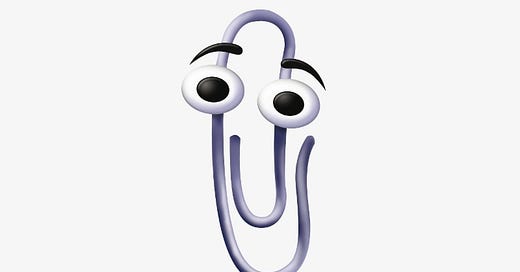


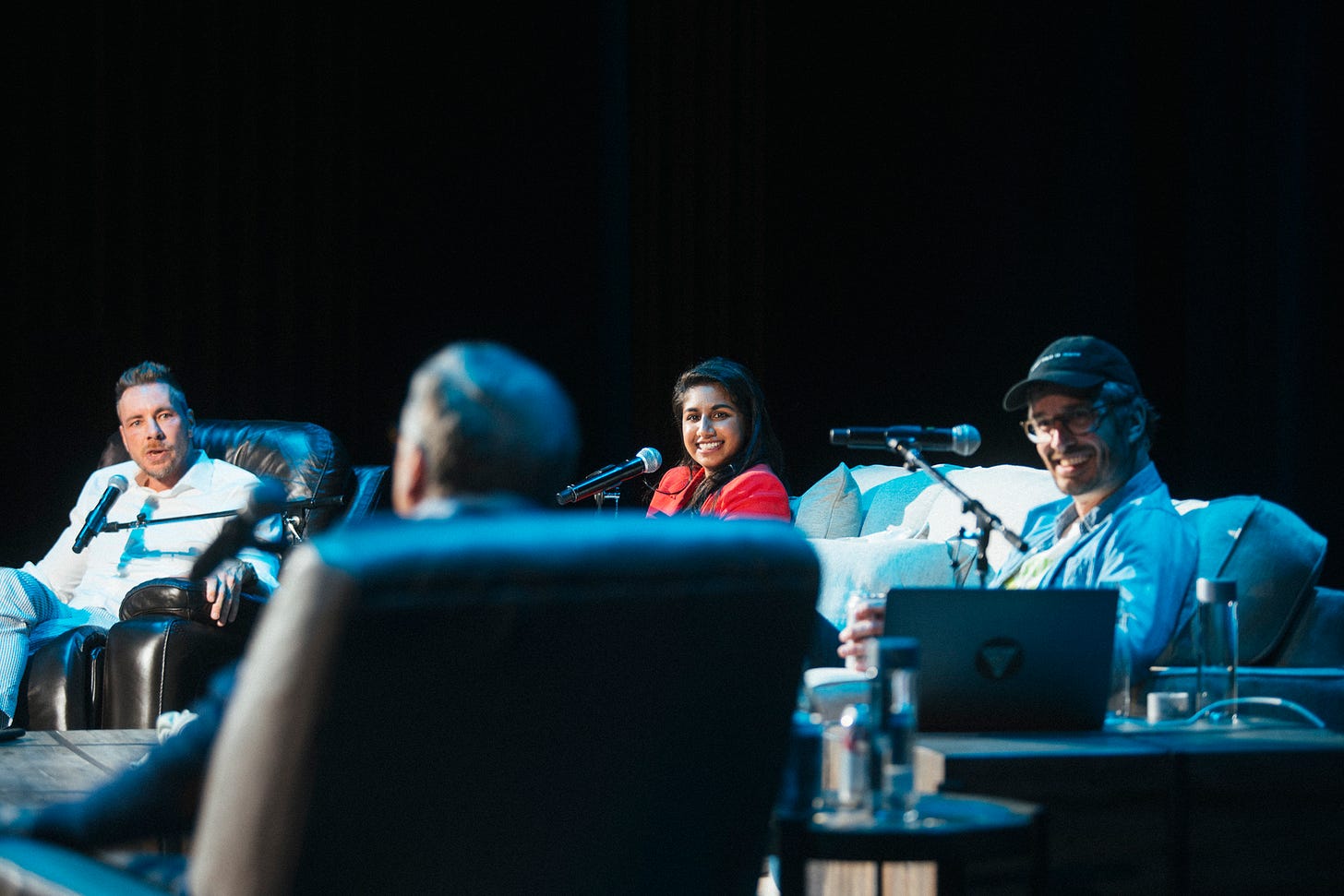
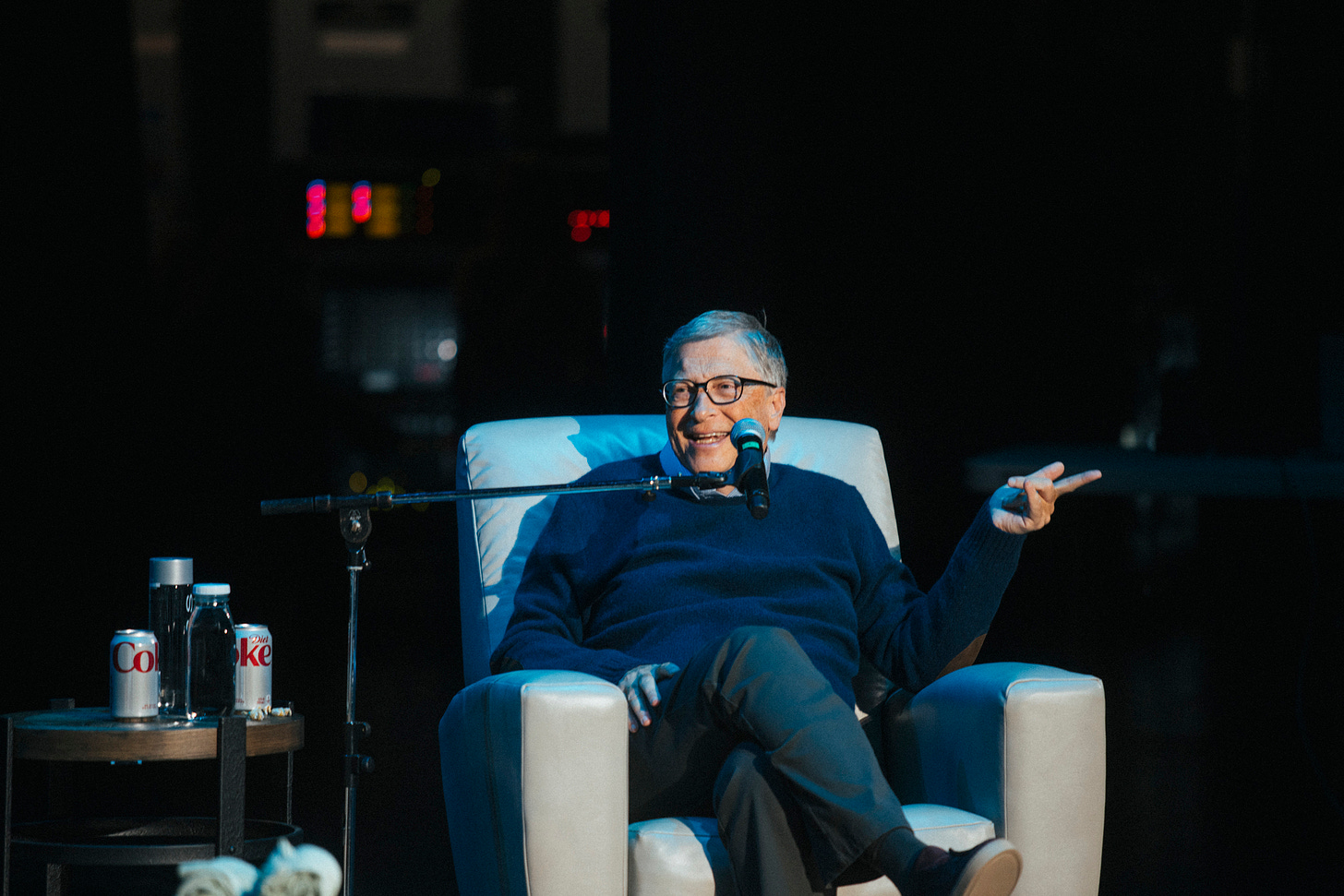

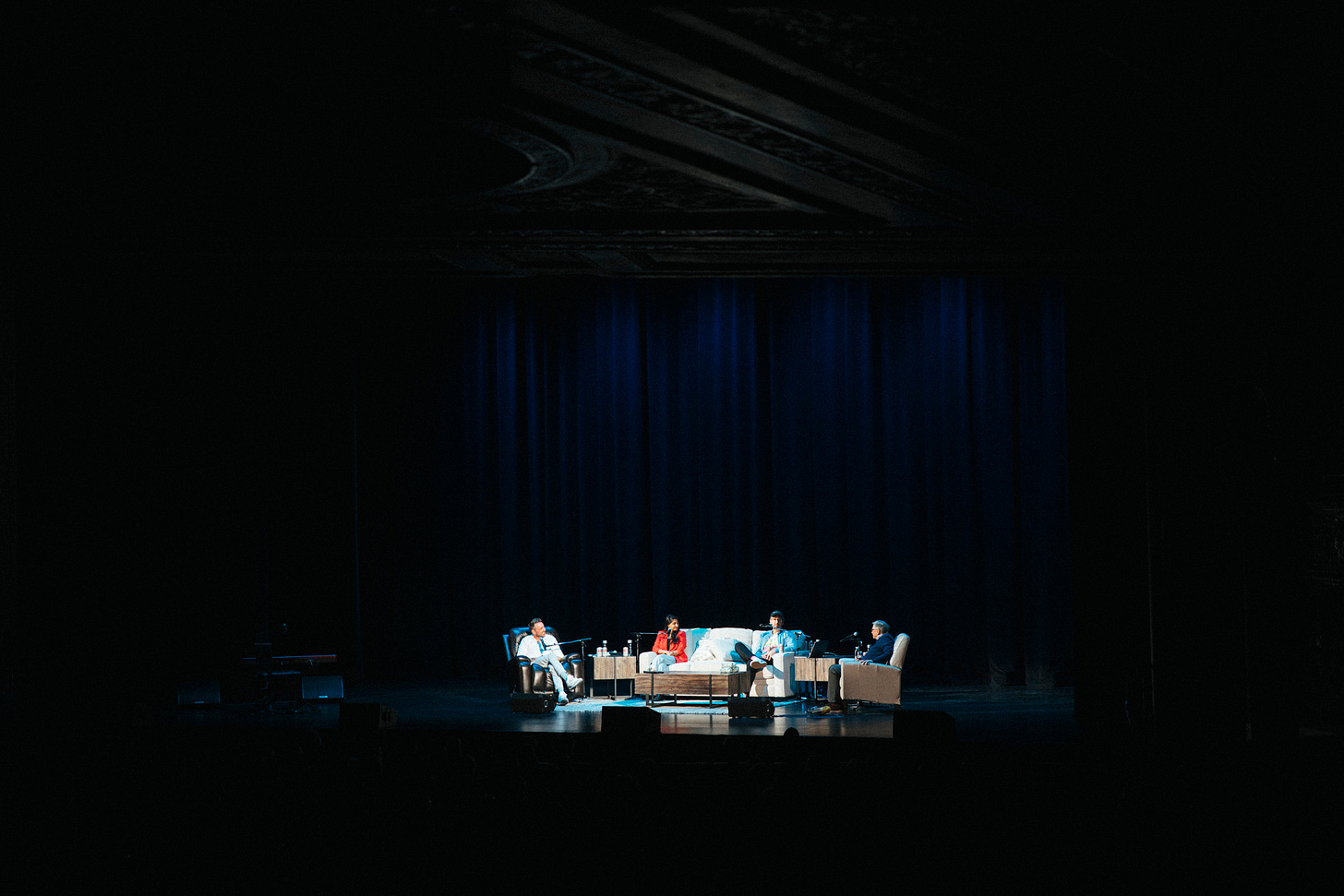
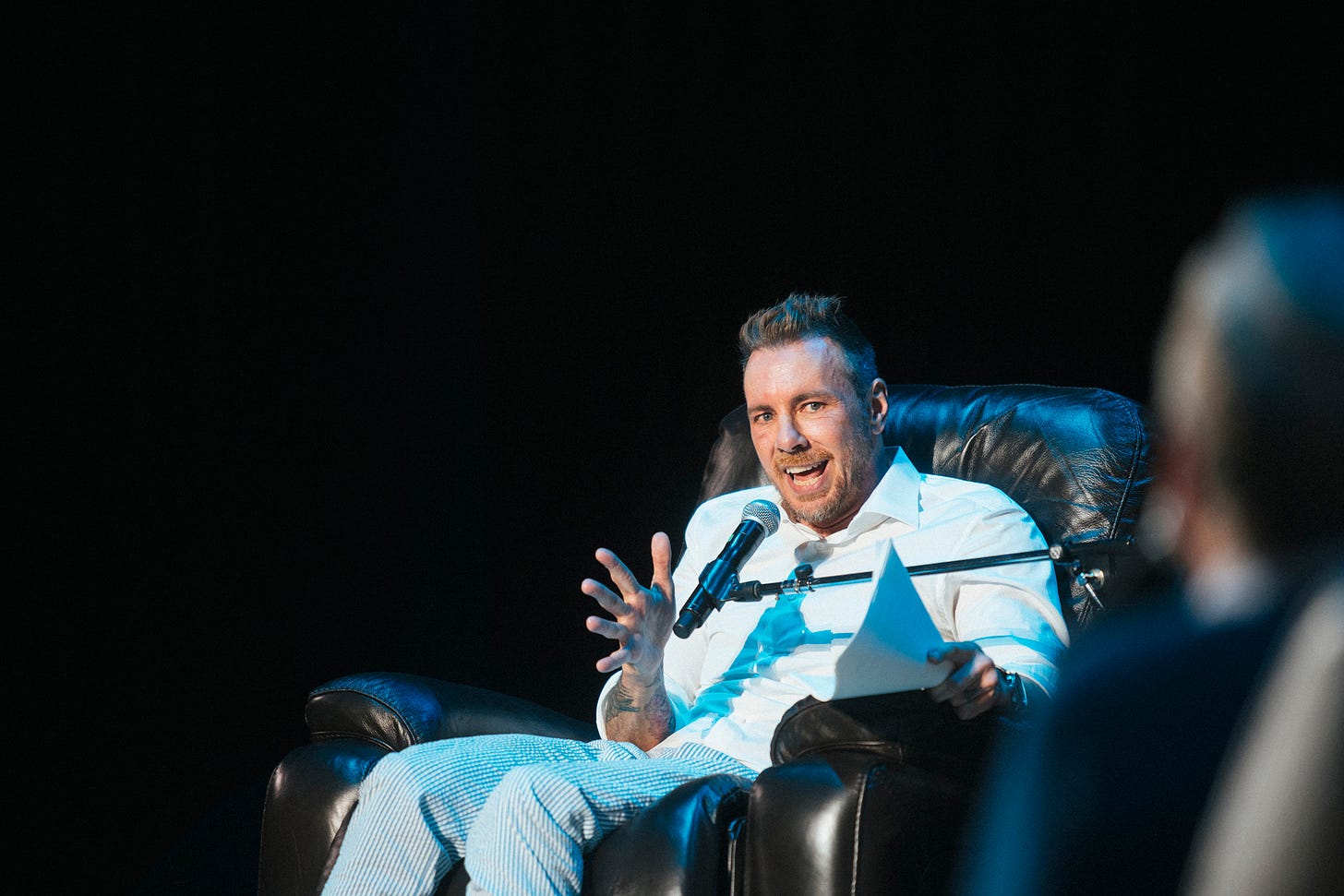
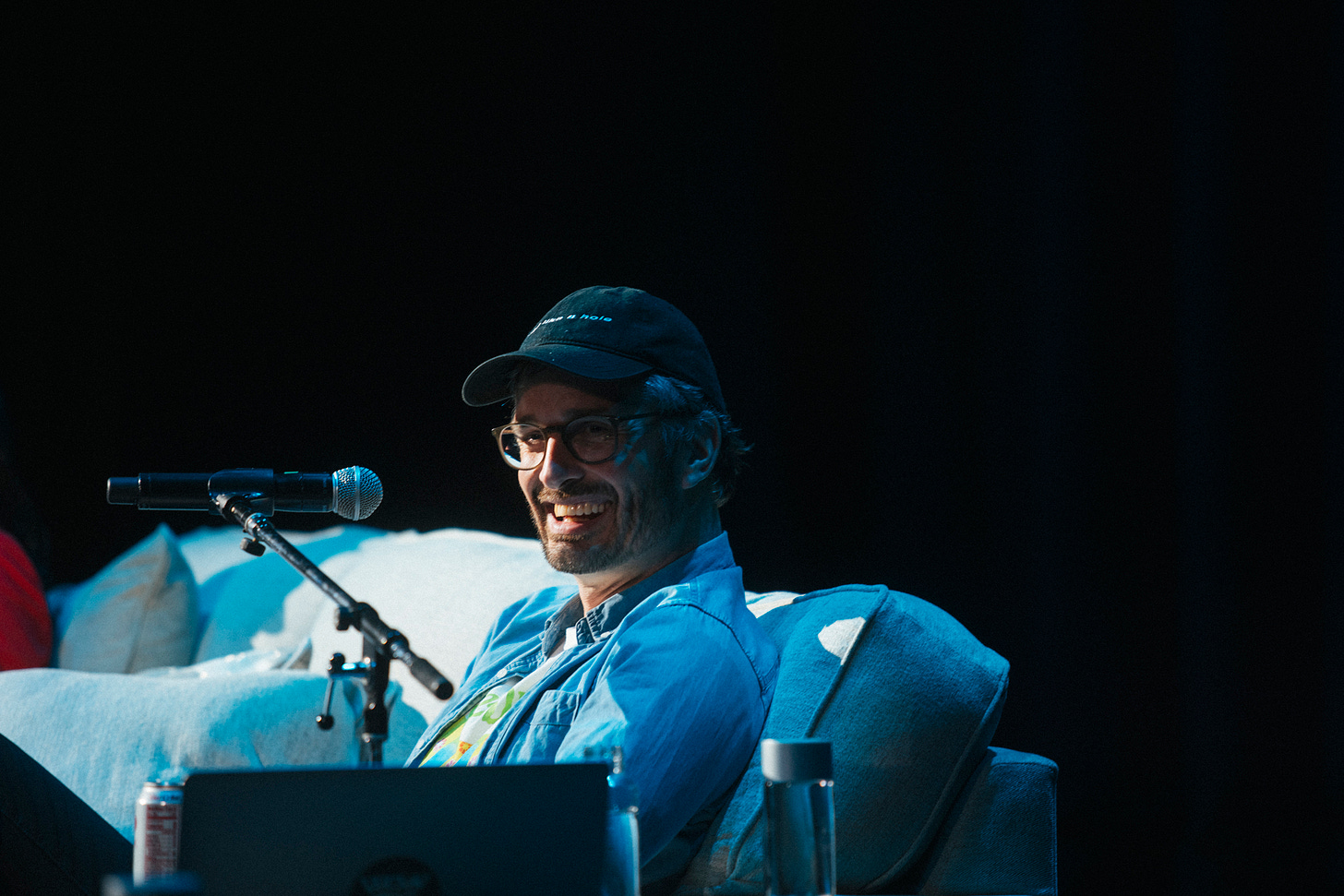

I’m all about a healthy distrust of government and the wealthy but vaccines are absolutely badass. I’ll never understand the antivaxxer view, mainly in part to the amount of efficiency they give any government organisations in their fantasy.
There’s a post in one of the Australian protest groups which has gone viral due to how funny and insane it is. The protesters there are convinced that they’re being hit with blow darts filled with Moderna because they’re feeling bee stings but can’t see any bees. If you haven’t seen it I’ll email it to you, it’s next level.
We've got a bunch of billionaires in this world. A bunch of them are into rockets, this one is into vaccines which is an improvement. I hope we get one as motivated to solve the systemic problems that create billionaires in the first place.